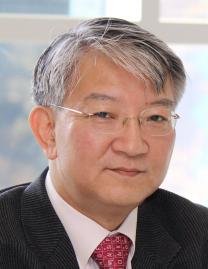
BioMed Central (BMC) provides open access scientific journals. I had a chance to catch up with Dr. Sang Yup Lee, Chair of BMC Chemical Engineering, prior to this year’s AIChE Annual Meeting to talk about where the chemical engineering community is going and how the AIChE Annual Meeting and scientific journals can help to get it there.
What changes have you seen in the chemical engineering profession in recent years?
Chemical engineering has continuously evolved to encompass various disciplines, including biological sciences and nanotechnology. The core principles of chemical engineering have upgraded such newly integrated disciplines into practical and industrial applications. Chemical engineering has been, is and will be at the core of all industries, including energy, chemicals, materials, medicine, agriculture, and environmental sustainability. It will be the key to help achieve many of the UN’s Sustainable Development Goals.
How do you see chemical engineers contributing to solving some of society’s biggest challenges, for example in the areas of food, energy, and water?
Chemical engineers and the research that they carry out directly respond to the global challenges we are facing in the areas of food, energy, chemicals, materials, water, and sustainability. Engineers by nature are problem solvers, and carry out targeted, solution-oriented, applied research and development. In the area of food, chemical engineers develop and enhance processes to ensure that food is produced and processed in the most efficient and sustainable way. In large-scale food production, chemical and process engineers ensure that each step, from growing, harvesting, processing, packaging, and delivery, is performed efficiently and safely so that consumers receive the best possible produce.
In energy, chemical engineers work with materials scientists, chemists and biologists to develop new, sustainable routes to energy generation, whether that be developing new processes for extracting microbial biofuels, or using new materials to reduce the output of harmful gases during fossil fuel energy generation. The energy sector is highly interdisciplinary and chemical engineers work across many different fields to develop and implement improved energy generation and storage processes.
In chemicals and materials, chemical engineers have been developing new methods and strategies to ensure more efficient and sustainable production. In one example, metabolic engineering has advanced rapidly, thanks to chemical engineers producing diverse chemicals and materials from renewable non-food biomass through the fermentation of engineered microbes.
Water is a vital resource and chemical engineers are involved in ensuring that every person on the planet has access to a clean water supply, while also ensuring that this resource will be available to all in the future. Particular areas of focus for chemical engineers are in wastewater treatment, with the development of low-energy methods for removing an ever-evolving array of potential contaminants, and desalination to produce fresh water from seawater. Of course, chemical engineers are developing many technologies to make our world sustainable beyond water.
How do chemical engineers benefit from gathering at an event like the Annual Meeting and interacting with colleagues from various research areas?
The AIChE Annual Meeting is the flagship international conference of the field and provides an important opportunity for chemical engineers to come together and discuss the most recent research developments. The meeting provides a forum for conversation across disciplines, and the networking opportunities allow for new collaborations, broader discussion, and new perspectives on the most important research questions.
How does publishing in scientific journals assist chemical engineers with professional growth?
Publishing in scientific journals is one of the most important media for the dissemination of research outputs. Peer-reviewed work published in high-quality journals advances science and engineering, particularly when the research is published open access. BMC Chemical Engineering is a new journal published by Springer Nature that is fully open access and encourages the publication of research data. It serves the chemical engineering community by following the BMC Series ethos of openness and inclusivity. For more about the journal, or to be involved as an author, reviewer, or editorial board member, please get in touch with Dr. Harriet Manning or visit the website: https://bmcchemeng.biomedcentral.com/

Sang Yup Lee
Dr. Sang Yup Lee is the Chair of BMC Chemical Engineering. He is the Distinguished Professor at the Department of Chemical and Biomolecular Engineering, Korea Advanced Institute of Science and Technology (KAIST). He is currently the Dean of KAIST Institutes, Director of BioProcess Engineering Research Center, and Director of Bioinformatics Research Center. He is currently co-chair of the Global Future Council on Biotechnology and a member of the Global Future Council on the Fourth Industrial Revolution, World Economic Forum.
Disclosure: This post is sponsored by BioMed Central and reflects its views, opinions, and insights.


